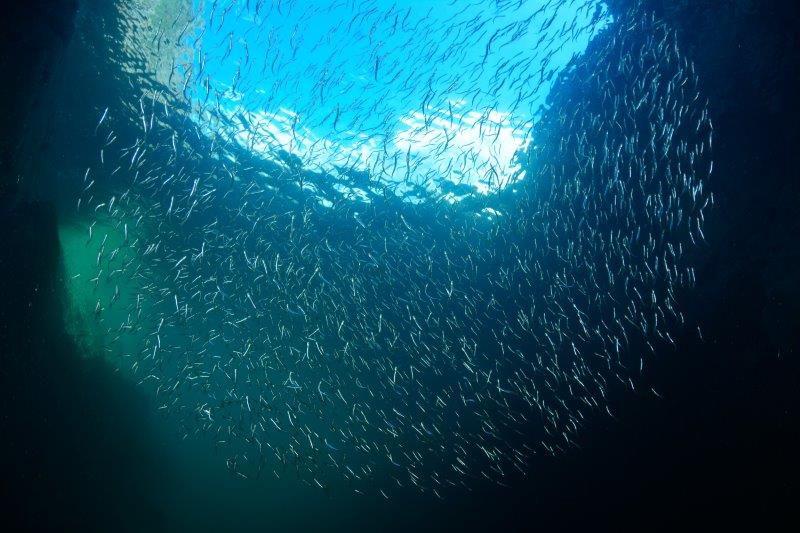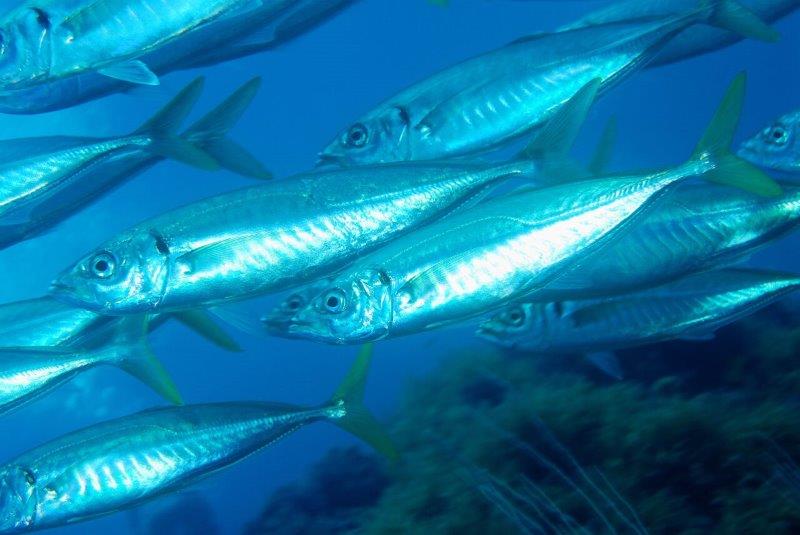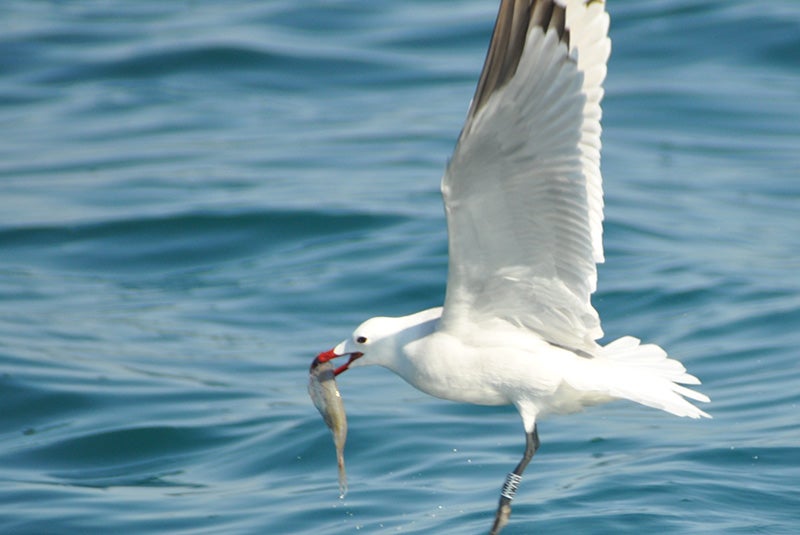New report: keep the small fish plentiful to ensure ocean health
Press Release Date: September 25, 2023
Location: Brussels
Contact:
Emily Fairless | email: efairless@oceana.org | tel.: +32 478 038 490
Only one in six forage fish populations in the Northeast Atlantic is both sustainably exploited and in a healthy state, according to a report published by Oceana today. The marine conservation organisation is urging Northeast Atlantic countries to improve their management of these small fish, in advance of negotiations on fishing limits later this year.
Many marine species – from marine mammals and seabirds to commercially important fish – depend on forage fish such as sandeel, sprat, and herring as a primary source of food.
However, Northeast Atlantic countries are fishing them at unsustainable levels. Of the 32 forage fish populations analysed in Oceana’s report, only a fraction (16% or 5 populations) is both sustainably exploited and in a healthy state. The rest are either subject to overfishing, at worryingly low abundance levels, or their state is unknown due to data limitations.
Vera Coelho, Deputy Vice President at Oceana in Europe, said: “The poor state of these fish populations shows that we are simply failing in the way we exploit forage fish. When deciding on fishing limits for sandeel, sprat, herring and others, fisheries ministers must let go of the ‘catch as much as you can’ approach and start considering how these species are essential food for other marine animals – including important commercial species, such as cod and whiting.”
Current fisheries management rules focus on maximizing catches over the long term, which may be sustainable for individual forage fish stocks themselves, but not necessarily for their predators, as it deprives them of an adequate food supply. These same predators are also impacted by the industrial use of forage fish, as catches of some populations are almost exclusively intended for fishmeal and fish oil production, to feed farmed fish.
“It makes no sense to take this essential source of food away from, say, cod, puffins or dolphins to give it to farmed salmon or other aquaculture species,” added Coelho.
Forage fish populations fluctuate a lot in terms of their abundance and distribution, due to for example warming ocean temperatures and reproductive success. Overfishing makes this worse and weakens these fish’s resilience to environmental changes and other human pressures, including climate impacts. Difficulties in determining their abundance and exploitation rate, even for scientifically assessed populations, results in decision-makers often taking inappropriate management decisions.
To better manage forage fish species, Oceana is calling on the EU and other fishing nations in the Northeast Atlantic to adopt Ecosystem-Based Fisheries Management (EBFM) and factor in the role played by forage fish in marine food webs and in the ecosystem at large. Key recommendations from the report include:
- Adopting catch limits based on improved and updated science, taking into account broader ecosystem and environmental considerations;
- Implementing adaptive management strategies, which include objectives to maintain population abundance within ecological limits, and regularly testing and updating them;
- Better protecting habitats and ecosystems, by restricting activities that could degrade essential forage fish habitats, and requiring a thorough impact assessment of forage fish fisheries.
Maintaining forage fish at healthy and abundant levels will bring knock-on benefits for the marine environment, fishing communities, and society at large.
Read more: Small but mighty: Managing Northeast Atlantic forage fish to sustain marine life
Read more: Briefing: Recommendations for the management of forage fish in the Northeast Atlantic




